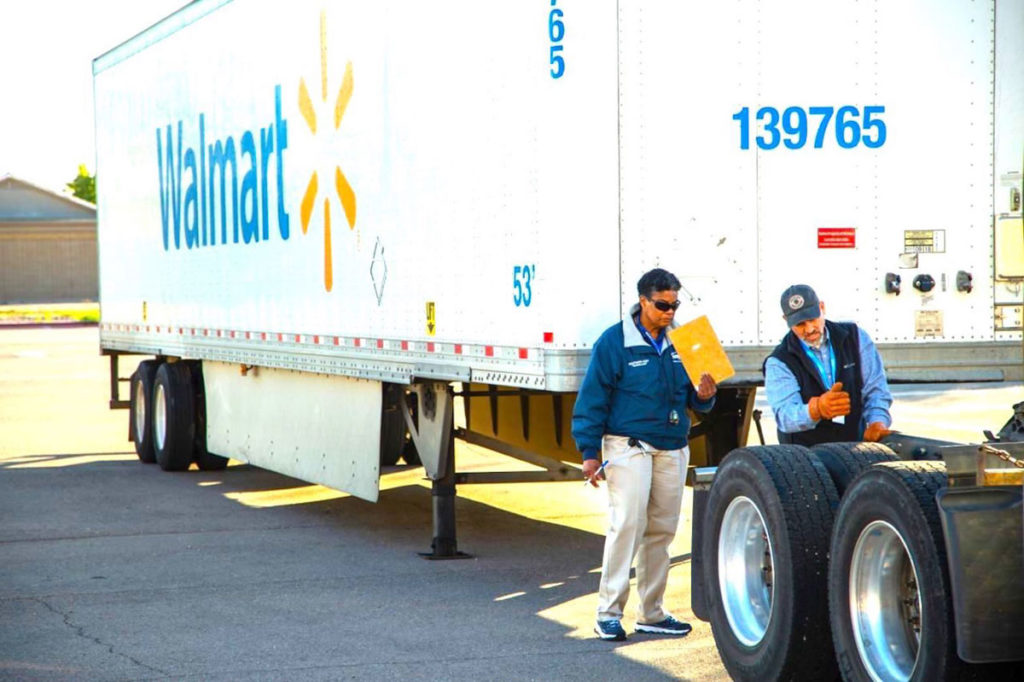
The Court of Appeal affirmed the trial court, ruling that the time drivers spent on layovers should be paid under California law, if Walmart exercised control over the drivers during those layovers.
Over a decade ago, four truck drivers sued Wal-Mart claiming Wal-Mart violated California’s meal and rest break laws. As part of their job, truckers would travel a wide range of routes, to different locations, hauling different freight.
Wal-Mart paid truckers through an “activity-based pay system,” which included pay for (1) mileage, (2) tasks that constituted “activity,” such as arriving and departing a facility, as well as hooking a new trailer to the truck, and (3) hourly wages of fourteen dollars per hour for limited events like time spent waiting at a store or supplier and delays due to inclement weather or truck breakdown.
The truckers claimed that Wal-Mart did not pay drivers for all job duties, and it required drivers to take rest breaks without pay, and “controlled” drivers during ten-hour layover periods. Because of this, the drivers argued that Wal-Mart should have paid drivers minimum wage pay.
The trial court found that under Wal-Mart’s pay policy drivers were not paid separately for some activities they should have been paid for. The court also held that, because of Walmart’s policy, drivers were subject to Wal-Mart’s “control” during layovers. Thus, the court found that Wal-Mart must pay minimum wages during those times. Although the court found that Wal-Mart’s policies described practices that would violate California law, the court presented to the jury the factual question of whether Wal-Mart had implemented those policies
A jury ultimately found in favor of the truck drivers on four issues, awarding drivers $44,699,766 for layovers, $3,961,975 for rest breaks, $2,971,220 for pre-trip inspections, and $2,971,220 for post-trip inspections, for a total damage award of about $54 million. Wal-Mart appealed the jury verdict, arguing, among other things, that the trial court interpreted the law on “control” incorrectly, and that the minimum wage pay was computed using the wrong method.
California law requires employers to provide a 30-minute uninterrupted meal period to employees for every 5 hours of work. Merely offering or allowing a meal break is not enough. The employer must affirmatively perform the following obligations:
- Relieve the employee of all duty for 30 minutes within the first 5 hours of work
- Give employees the freedom to leave the workplace during breaks
- Relinquish control over the employees’ activities during breaks
- Employees should not be impeded or discouraged from taking breaks
The Court of Appeal affirmed the trial court, ruling that the time drivers spent on layovers should be paid under California law, if Walmart exercised control over the drivers during those layovers. The employee need not be actively working for the employer to exercise control. Because Walmart required drivers to obtain pre-approval to spend layovers at home, Walmart exercised control over drivers during layovers.
The court noted that the issue of “control” is primarily a question of whether an employee can spend a break or non-work time however they like. Here, Walmart restricted drivers’ freedom of movement during layovers by requiring them to seek permission to go home. Walmart, thus, reserved the right to decline permission to leave. Several drivers testified that they thought they were required to sleep in their trucks on layovers and could not consume alcohol or have visitors. That evidence was enough to support the jury’s finding that Walmart exercised control during layovers.
The Law Offices of C. Joe Sayas, Jr. welcomes inquiries about this topic. All inquiries are confidential and at no-cost. You can contact the office at (818) 291-0088 or visit www.joesayaslaw.com. [C. Joe Sayas, Jr., Esq. is an experienced trial attorney who has successfully recovered wages and other monetary damages for thousands of employees and consumers. He was named Top Labor & Employment Attorney in California by the Daily Journal, consistently selected as Super Lawyer by the Los Angeles Magazine, and is a Presidential Awardee for Outstanding Filipino Overseas in 2018.]

